Best Ecommerce Hosting Providers: The Top 5
If you click to purchase a product or service based on our independent recommendations and impartial reviews, we may receive a commission. Learn more
If you want to run a successful online store then you need a reliable web host.
To help ensure your website runs optimally and securely online, the web host you choose for your store will depend on a variety of factors including uptime, security, and cost.
Our team of experts have reviewed all the best ecommerce hosting providers on the web to bring you the top five. Chosen for their variety of features, value for money, and security and reliability, these five web hosts each offer an ideal base for your online store.
While Bluehost comes out as our top-rated ecommerce hosting provider, offering high-quality services, value for money, and reliable and secure uptime, we’ll take a deep dive into each of our top five so that you can decide which one is right for you.
Top 5 Ecommerce Hosting Providers
- Bluehost – Best overall ecommerce hosting provider.
- Hostinger – Best value for money.
- SiteGround – For extra security.
- DreamHost – For exceptional performance.
- GoDaddy Hosting – For great customer support and educational resources.
1. Bluehost
5 out of 5 stars
Rating: 4.7/5
Best overall ecommerce hosting provider
✅ Also recommended by WordPress.org

Bluehost is a great choice for ecommerce stores, in fact, it’s our number-one choice! There are dedicated WooCommerce plans on offer, ideal if you want to build a WordPress site. Speaking of WordPress, Bluehost also comes with an offical WordPress recommendation by the platform itself for tis WordPress-specific hosting.
You can sell an unlimited number of products, and there are also features including gift cards, secure online payments, and product filtering available.
Check out our full Bluehost review to decide if it’s the provider for you.
What We Liked
✅ Great for WordPress websites
✅ Dedicated ecommerce plans
✅ 24/7 phone support and live chat
What We Didn’t Like
❌ Data centers are only located in the US
❌ Storage is limited compared to others on the market
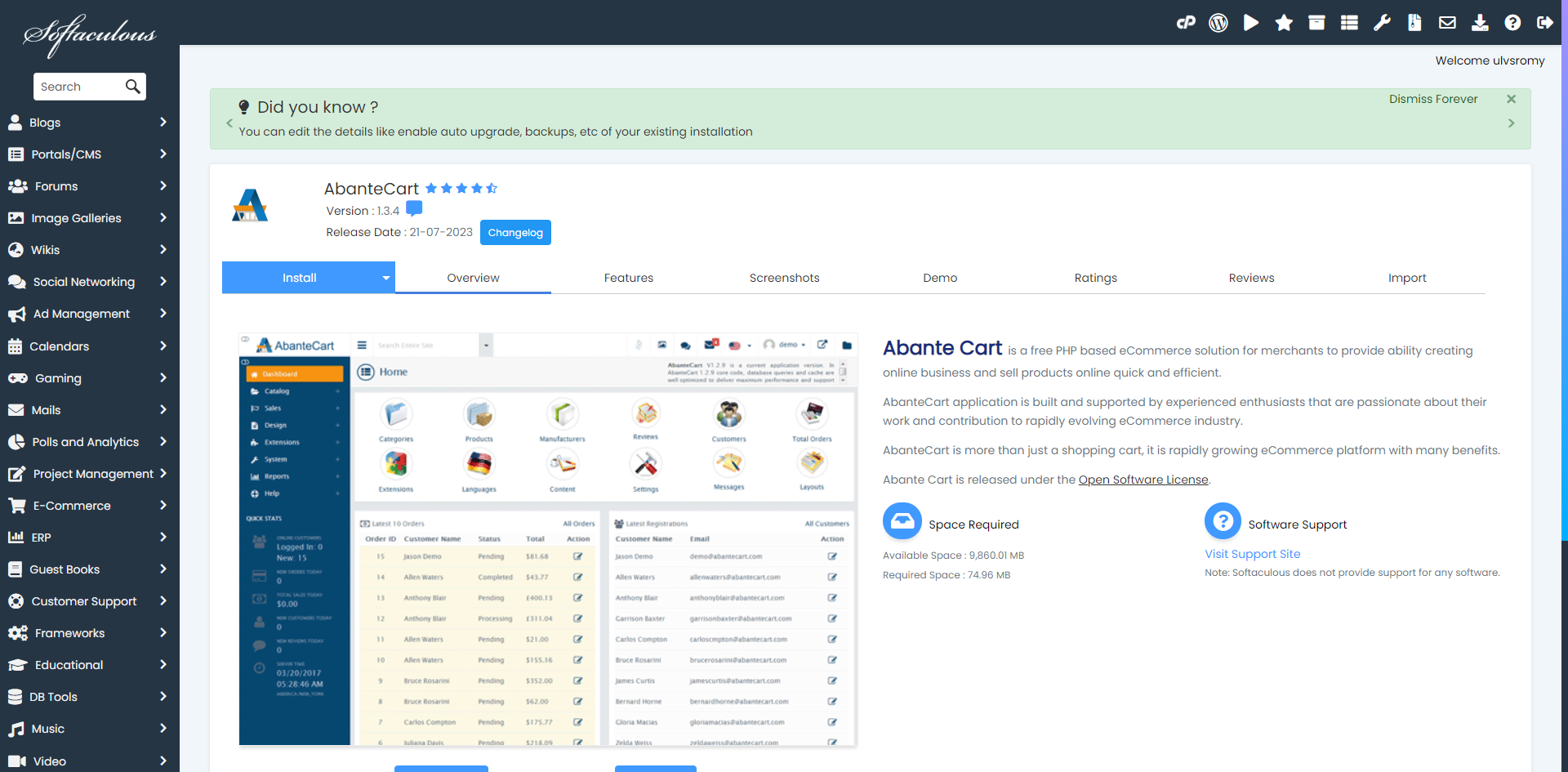
Plans and Pricing
Bluehost has a variety of plans that suit ecommerce stores, starting with the Online Store shared hosting plan that costs $6.99 per month for 12 months. We recommend this plan if you’re launching a small store, since it doesn’t come with multi-channel selling tools.
If you’re looking to grow your store, we recommend checking out Bluehost’s more advanced WooCommerce-specific plan for selling online. The Online Store + Marketplace plant supports multi-channel inventory, great if you want to sell your products on marketplaces such as Amazon and Etsy too. This plan comes in at $12.95 per month for 12 months.
As with most hosting providers, these Bluehost prices are introductory offers and you can expect the prices to rise once your initial period is up. The Online Store plan, for example, will rise to $15.99 per month after your initial 12-month period, a pretty hefty price increase.
Performance and Scalability
You need your online store to be accessible to customers 24/7. While no hosting provider can guarantee 100% website uptime (you just never know what hurdles may crop up), you need one that can come close.
Luckily, Bluehost does. Bluehost advertises an uptime of 99.98%, meaning you can be confident your store will be online and ready to take orders almost always.
Bluehost is a speedy provider, meaning your online store will load and react quickly to user interactions, however, it is worth noting that all of Bluehost’s servers are located in the US, which means if you’re offering international shipping and opening your store to a wider audience, your customers abroad may experience some lags in loading times.
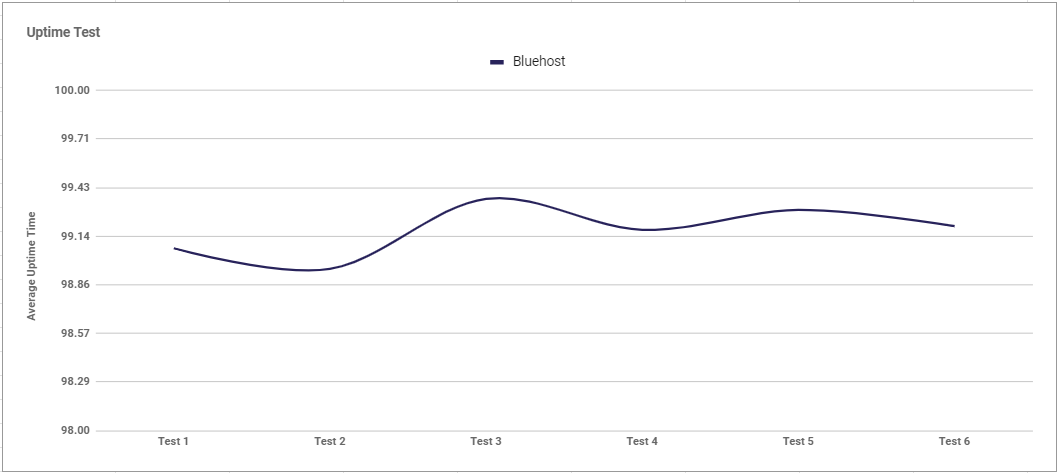
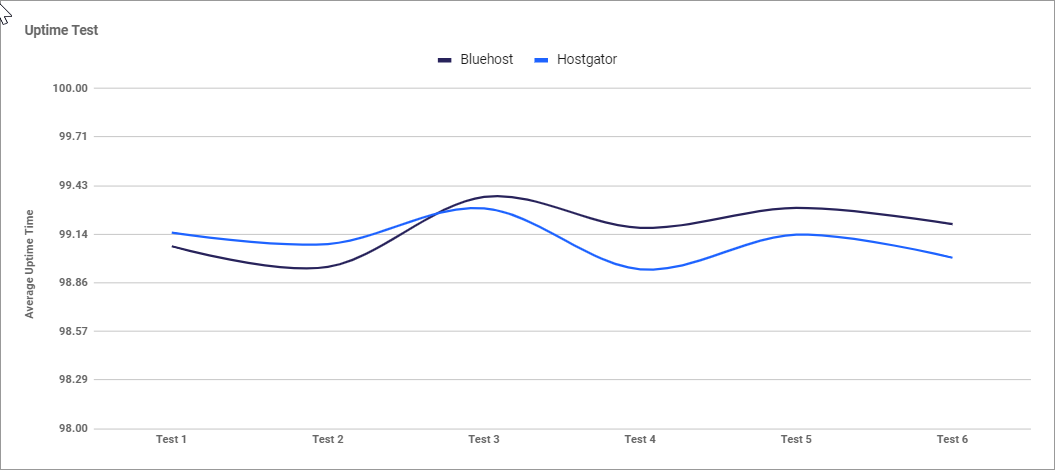
Help and Support
Hopefully running your online store will be smooth sailing, but now and then problems do arise, and you want to be sure that your hosting provider will be on hand to help you out.
Bluehost offers 24/7 ecommerce support via phone or live chat. We always love a hosting provider that offers phone support – sometimes nothing beats speaking to a human one-on-one.
There’s also the online Knowledge Base with over 300 ecommerce-themed resources to help you make the most of your hosting and answer common questions.

Security and Reliability
Your online store needs to be secure. It’s a non-negotiable. Customers will be inputting sensitive data, such as delivery addresses and payment details, and it’s paramount that you look after that data.
A data breach could be catastrophic for your online reputation, so you need to be confident that your hosting provider is as safe as Fort Knox.
The good news is that Bluehost takes website security seriously. Both the Online Store plans come with a free SSL certificate and malware scanning, helping to keep you and your customers safe from online threats.
Bluehost offers SiteLock essentials (protection from malicious attacks) for an $35.88 per year, be aware that this is auto-added at checkout and you’ll need to remove it if you don’t want the extra cost.
Storage and Backups
You need plenty of storage if you want to run an online store, especially if you have a large product inventory to showcase.
Bluehost’s Online Store plan offers 40GB of SSD storage and, even more impressive, unlimited product listings, meaning you can scale and add as many products to your store as you want without having to pay extra or impact your website performance.
Storage is capped on the most expensive Bluehost plan, where you’ll get 100GB, plenty for most online stores but worth noting if you were hoping for an unlimited option.
Daily Backups are also included as free for the first year of your plan, meaning should the worst happen and your website is threatened, you’ll be able to get it back up and running quickly. However, daily backups will set you back $47.99 per year after your initial 12 months, so you’ll need to factor this into your budget.
2. Hostinger
4.5 out of 5 stars
Rating: 4.5/5
Best value for money
✅ Also recommended by WordPress.org
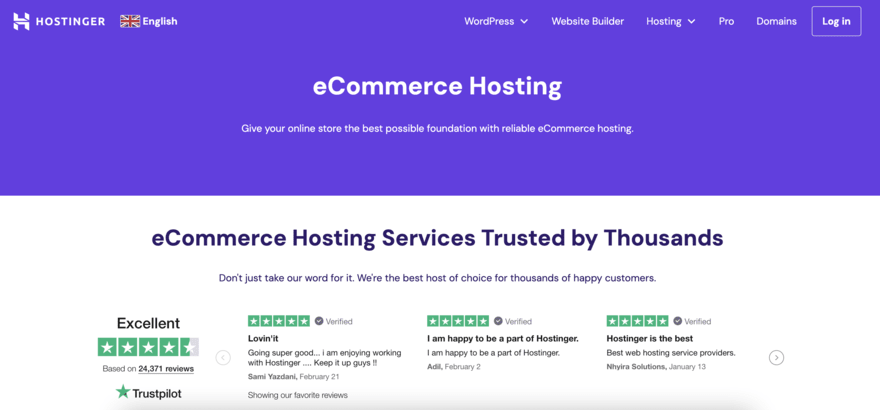
Second on our list of the best ecommerce hosting providers is Hostinger. Packed with features for great value for money, there are shared, VPS, and WordPress plans on offer. Like Bluehost, Hostinger is recommended by WordPress.org, meaning you’re officially in good hands!
There’s also free migration on offer to customers when you take out a plan, meaning if you currently host your online store elsewhere and want to make the switch to Hostinger, they’ll handle the migration for you…for free!
Check out our full Hostinger review to decide if it’s the right provider for you.
What We Liked
✅ Great value for money
✅ Free migration from other providers
✅ International data centers
What We Didn’t Like
❌ Uptime could be better
❌ No phone support
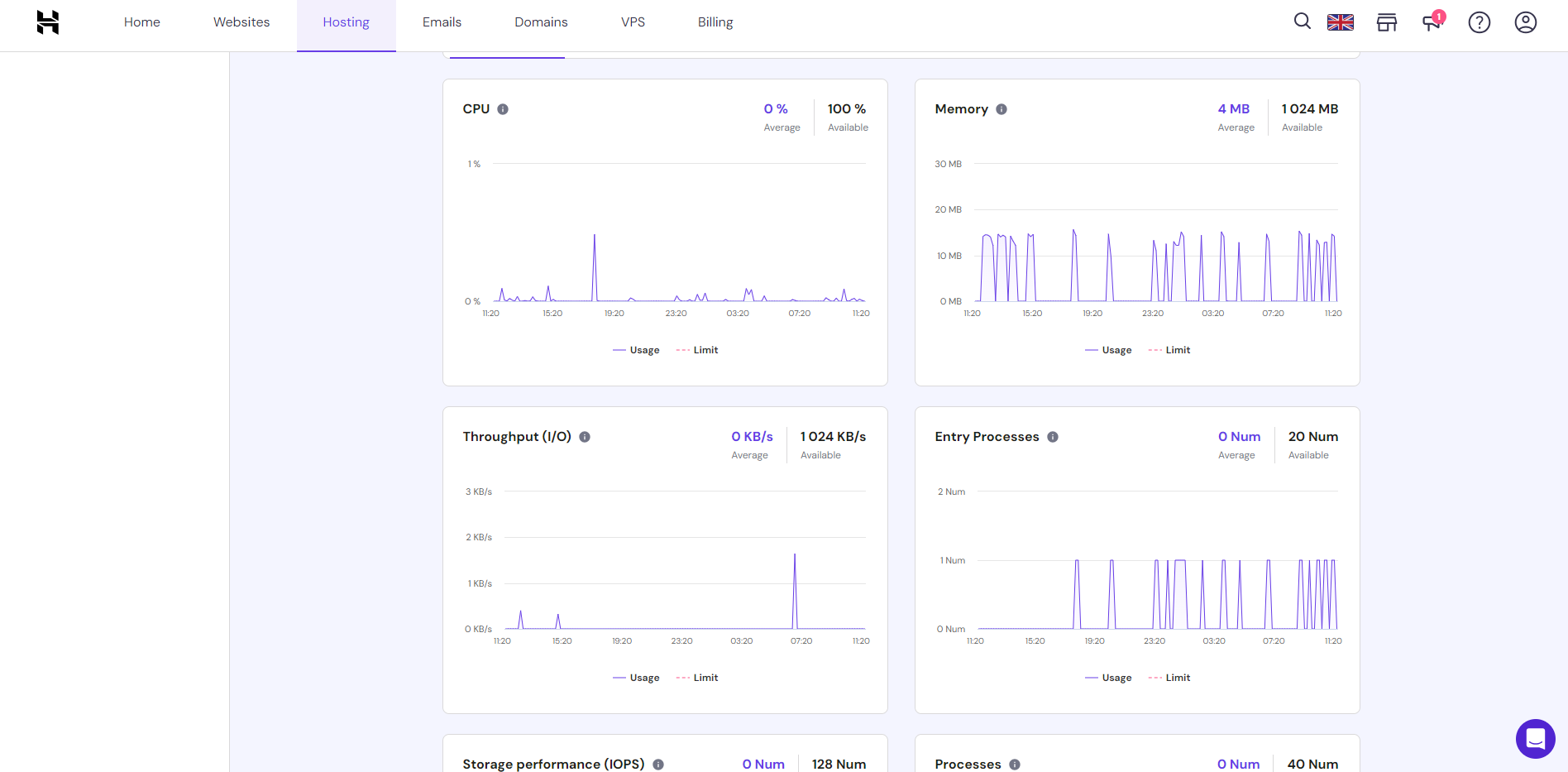
Plans and Pricing
Hostinger offers a variety of hosting plans suitable for online stores, including shared, VPS, and WordPress hosting options.
For shared hosting, the best option is the Business Plan, costing $4.49 per month when you commit to 12 months, thanks to the 200GB of storage and WooCommerce integration included.
You can commit to as little as one month or as long as 48 months when you take out a Hostinger plan, however, we think you’ll agree that four years is a HUGE commitment, especially if you’re just starting on your ecommerce journey. That said, the longer you commit, the cheaper your monthly payments will be.
Like Bluehost, these prices are just an introductory offer and you can expect your monthly payments to rise to $13.99 once your initial period is over.
Hostinger themselves recommend their cloud hosting plans for ecommerce stores, where prices start at $9.99 per month for 12 months for 200GB SSD storage. This is impressive when you consider the most expensive Bluehost plan is capped at 100GB.
When choosing an ecommerce hosting provider, you must think about how much the plan costs after renewal. You don’t want to get lured in by a great introductory offer, only to discover you can’t afford the monthly payments when it’s time to renew.
Performance and Scalability
Unfortunately, Hostinger lets itself down with its uptime, a potentially huge problem for online stores.
While it claims to offer an uptime of 99.9%, in our testing we found that it fell short. If uptime is a big priority for you – and for online stores that don’t want to miss out on sales it usually is – you may have a better experience with our top provider Bluehost.
On the flip side though, Hostinger is a great choice for those who want to target an international audience. With data centers in the USA, UK, Netherlands, Lithuania, France, India, Singapore, and Brazil, you can be sure that no matter where your audience is based, they’ll experience a speedy service.
All Hostinger plans offer unlimited bandwidth, great news for almost all ecommerce stores.
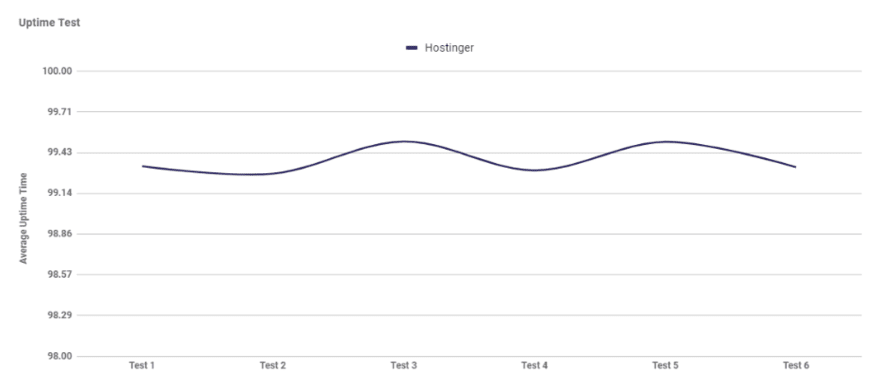
Help and Support
Hostinger’s help and support is OK. There’s 24/7 live chat available but no phone support, which is a real shame, especially when it’s offered by other providers such as Bluehost and SiteGround.
There is an on-site Knowledge Base with resources and answers to common questions, but when we searched for ecommerce-specific articles and tutorials, we were presented with just one page of basic results. Definitely an area that Hostinger could improve.
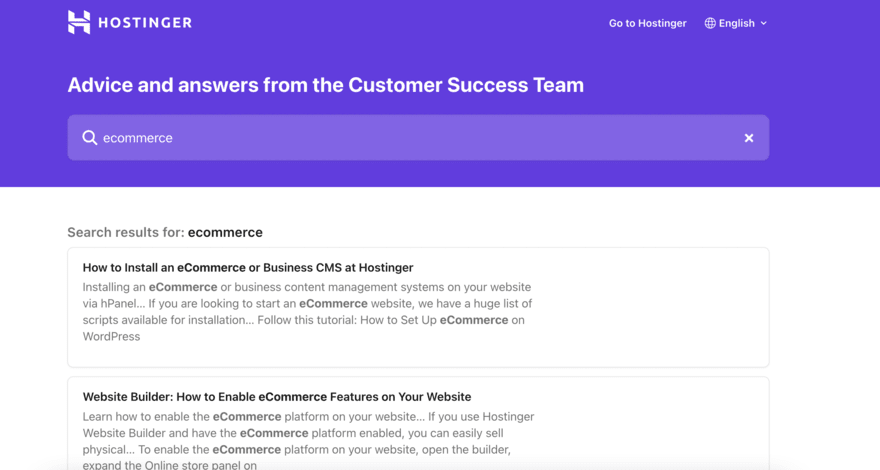
Security and Reliability
Security is key at Hostinger (as it should be!) and your online store will be equipped with a free SSL certificate, Cloudflare-protected named servers, and IP blockers.
Websites sit behind the Hostinger in-house firewalls, monitoring incoming and outgoing network traffic to help keep you and your users safe online.
Storage and Backups
So how much storage does Hostinger offer? On a Business Plan you’ll have access to 200GB of NVMe storage.
Daily backups are included as standard on the Business Plan (something that would cost an additional $25.08 on other plans).
Torn between our top two ecommerce hosting providers? Check out our Bluehost vs Hostinger guide to compare them against each other.
3. SiteGround
4.5 out of 5 stars
Rating: 4.4/5
Best for extra security

SiteGround’s ecommerce plans are powered by WooCommerce and if you’re using WordPress to power your online store then there are plenty of tools on offer for you to make use of including free WordPress migration and automatic WordPress updates.
SiteGround is a great choice for online stores targeting an international audience with data centers on three continents. However, the features on offer are more limited when compared with Bluehost and Hostinger. SiteGround used to be on the list of web hosts officially recommended by WordPress.org, but no longer appears since other hosts have overtaken it.
Check out our full SiteGround review to decide if it’s the right provider for you.
What We Liked
✅ Ecommerce plugins and apps are auto-installed
✅ Impressive uptime of 99.98%
✅ Additional security features
What We Didn’t Like
❌ Limited storage
❌ Big renewal fees
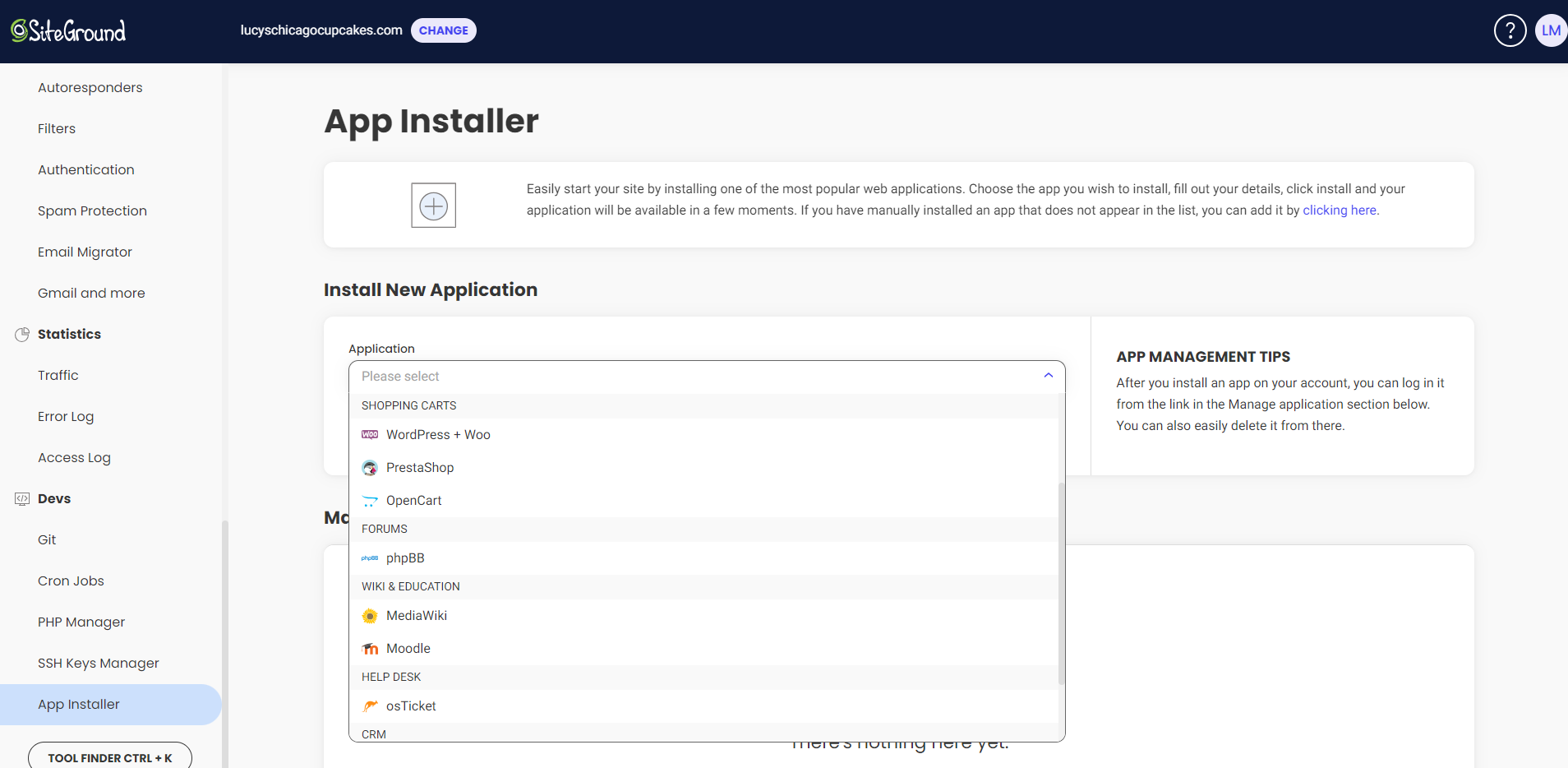
Plans and Pricing
SiteGround has a variety of plans on offer and the most basic plan, StartUp, costs $2.99 per month when you sign up for 12 months.
The StartUp plan is pretty limited though and won’t offer anywhere near the features needed for hosting an online store, so we recommend you head straight to either GrowBig plan ($4.99 per month) or GoGeek ($7.99 per month).
The GrowBig plan supports up to 100,000 monthly visits to your online store, which should be plenty for most ecommerce owners, but if you’re expecting even more than that then you’ll be pleased to know the GoGeek plan can support up to a huge 400,000!
While the SiteGround starting fees are relatively budget-friendly, its renewal prices are steep. The GrowBig plan for example will rise to a hefty $29.99 per month after your initial sign-up period. That’s a jump of 83%…pricey!
Performance and Scalability
SiteGround offers an impressive uptime guarantee of 99.98% which when converted into real-time means your website shouldn’t, in theory, be down for more than around 45 minutes per year.
Online store owners need to keep that downtime window as low as possible, if your website is down you risk losing sales, and 45 minutes per year is about as low as it gets.
SiteGround is a WordPress-recommended provider and its GrowBig plan supports up to 100,000 monthly web visits, making it a good choice for medium-sized online stores.
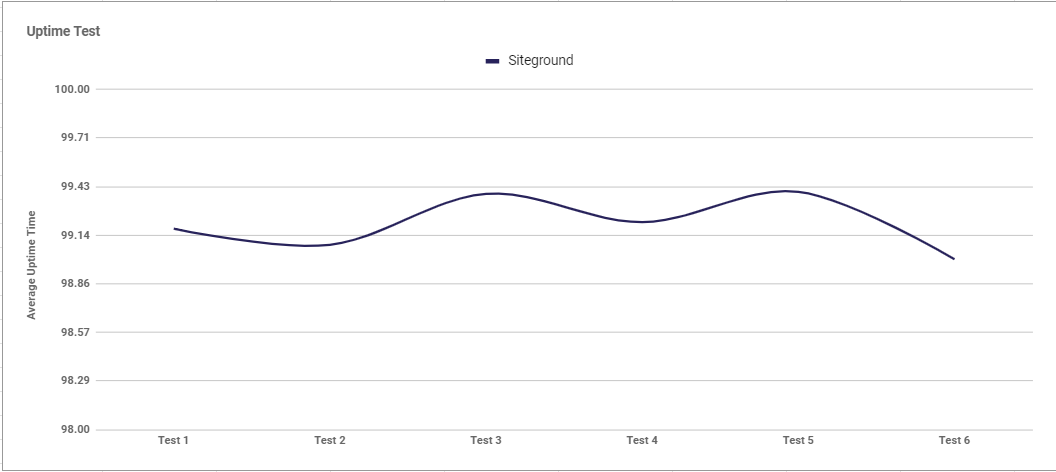
Help and Support
There’s 24/7 phone and live chat support on offer for customers. In our opinion, having access to help and support any time of the day is crucial, after all, you can’t time when something goes wrong during your provider’s opening hours.
The on-site Knowledge Base is packed full of resources to help you out, all broken down into categories to make navigation simple.
What really makes SiteGround stand out from the crowd however is its Geek to English podcast, where the experts explain technical jargon and concepts in plain English.
We recommend checking out the You and Your Users Data episode to help you get to grips with tracking and storing data from your online customers.

Security and Reliability
Like all the other ecommerce hosting providers in this list, SiteGround offers a free SSL certificate as part of your plan. An SSL certificate will show users that you’re a trustworthy and safe website, making them more likely to make a purchase and share sensitive data such as bank details with you.
SiteGround also has some cool added security features including a new AI anti-bot system. With the rise of AI hackers, this security feature prevents them from accessing your website and the secure data you hold. A cyber security essential in 2024.
Storage and Backups
Unfortunately, SiteGround’s storage is pretty limited, especially when compared with other ecommerce hosting providers.
The GrowBig plan only offers 20GB of storage, and to match our number one hosting provider Bluehost’s 40GB, you’ll need to pay for SiteGround’s most expensive GoGeek plan.
Every plan includes a free daily backup and the two more advanced plans also offer on-demand backup copies, allowing you to create up to five backups at any time.
4. DreamHost
4.5 out of 5 stars
Rating: 4.3/5
Best for exceptional performance
✅ Also recommended by WordPress.org

If you’re looking for a reliable hosting provider that’s been around for a while then DreamHost could be just right…it’s been around longer than Google!
It’s the final WordPress-recommended provider, alongside Bluehost and Hostinger, so ideal if you’re using WordPress for your online store, and there’s capacity for unlimited traffic for those stores that are planning to grow and grow.
Check out our full DreamHost review to see if it’s the right provider for you.
What We Liked
✅ 100% uptime guarantee (or your money back)
✅ Great storage on WooCommerce plans
What We Didn’t Like
❌ Limited storage on VPS and shared plans
❌ No phone support
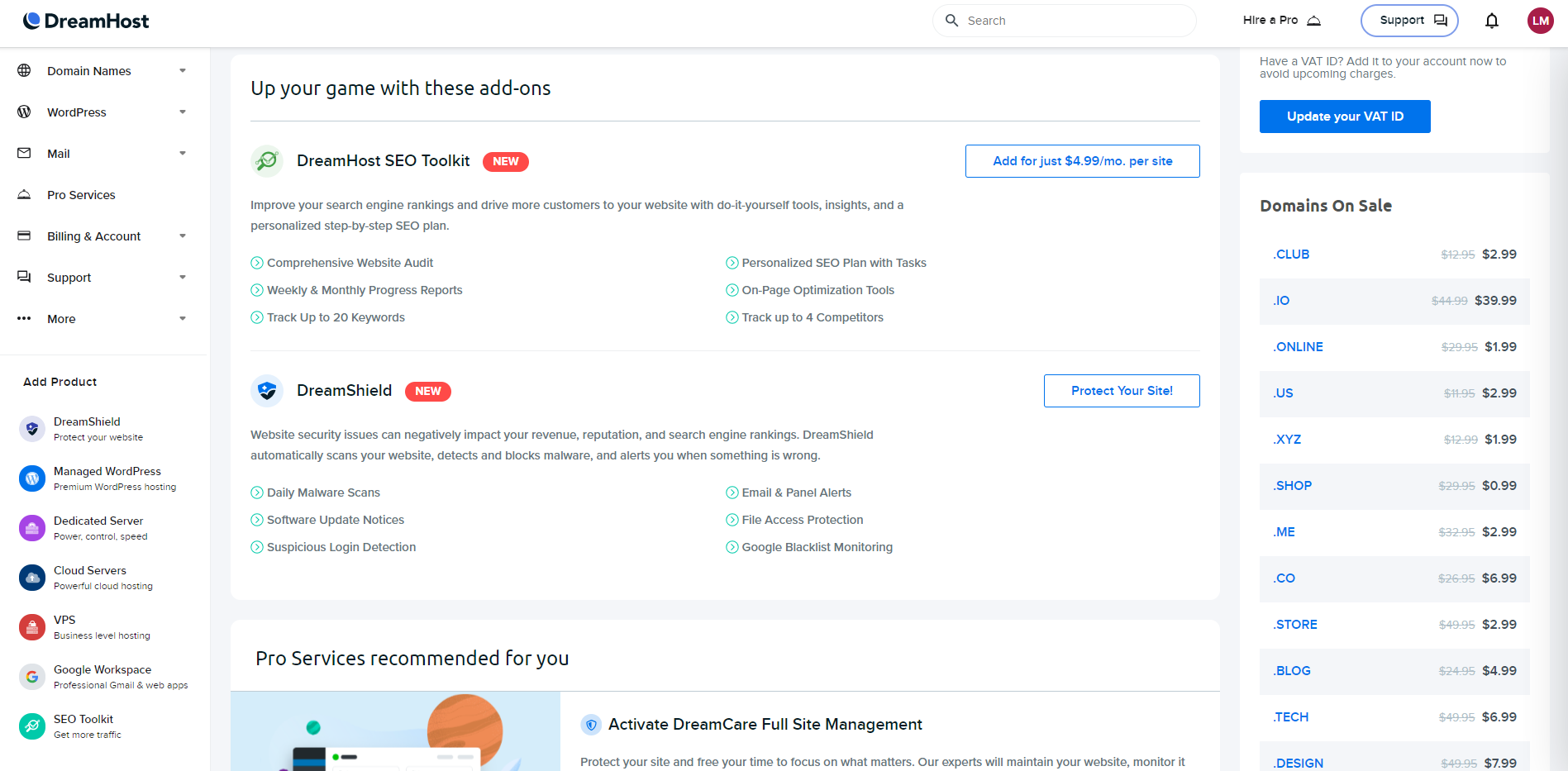
Plans and Pricing
DreamHost’s shared hosting plans are pretty averagely priced, coming in at $4.95 per month for the basic Shared Starter plan and $8.95 per month for the Shared Unlimited plan.
If you want to opt for a WooCommerce hosting plan, specifically designed for WordPress websites and online stores, then the price jump is substantial. You’ll be looking at paying from $16.95 per month for 12 months for this (for the most basic DreamPress plan), making DreamHost one of the most expensive ecommerce hosting providers on the market.
One good thing about DreamHost’s plans, however, is that you can sign up for any time you like, there’s no minimum term or 12-month commitment required.
If you do decide to opt for a monthly plan with no fixed term, you’ll get the introductory price for the first three months before the rates rise (the DreamPress plan for example starts at $16.95 per month but rises to $19.99 per month after renewal).
Performance and Scalability
DreamHost is a solid performer when it comes to hosting and it goes as far as offering a 100% uptime guarantee.
You might remember earlier we said no provider can promise 100% uptime and they can’t, so what does this mean? Basically, DreamHost will refund you some of your monthly fees if the servers go down, meaning it’s in everyone’s interests to keep them up and running.
Every plan also includes unlimited traffic, meaning no matter how many people visit your online store, your website can cope with the demand.This is a great perk for online store owners who often face the worry about whether their store can cope with demand on big shopping days such as Black Friday.
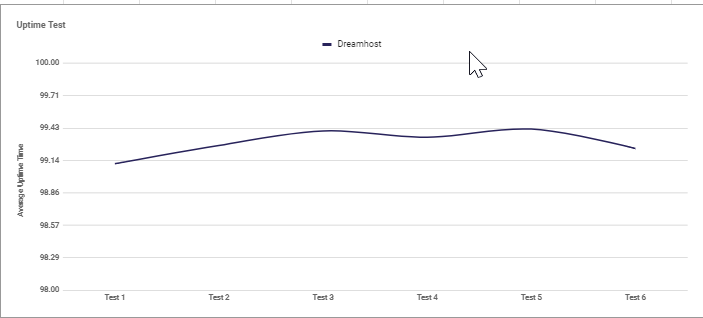
Help and Support
Help and support is key for website owners, you want to know someone will be on hand at any time to answer your questions. Luckily, DreamHost is.
There’s 24/7 support available via live chat and email 365 days a year. While this is great, there’s no phone support, unlike other providers such as BlueHost. Instead, you’ll have to submit an email support request and wait for DreamHost to phone you back, there’s no way for you to initiate the call. A big letdown for DreamHost.
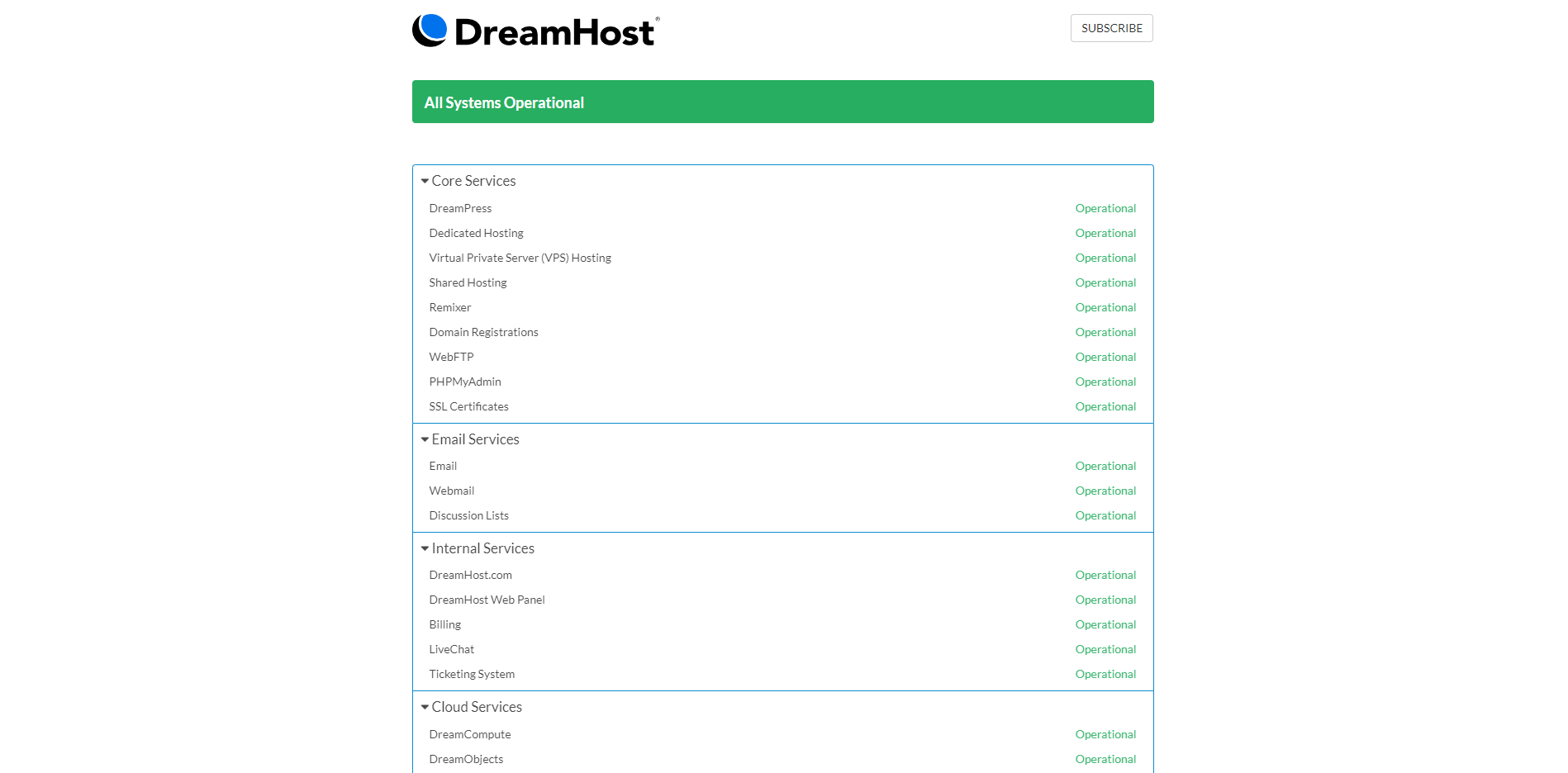
Security and Reliability
No matter what plan you pick you’ll get a free SSL certificate included, helping to keep data and transactions on your online store secure.
An added security benefit offered by DreamHost is the internally built malware remover that you’ll have access to, a software that finds and automatically fixes and removes malware on your site, helping to keep your online store running smoothly.
Storage and Backups
If you opt for a WooCommerce hosting plan, you’ll get 30GB SSD storage on the most basic plan, rising to 120GB on the most expensive.
Bizarrely, DreamHost doesn’t promote exactly how much storage you have access to if you opt for a normal shared hosting plan, simply stating “fast SSD storage”… So, if storage is key for your online store (e.g. you have a lot of products to list) we recommend choosing either a WooCommerce plan or even an alternative provider.
Unlike providers such as Bluehost and Hostinger, there are no daily backups included in DreamHost plans, but those on a DreamPress plan will have access to on-demand backups and one-click restore.
5. GoDaddy Hosting
4.5 out of 5 stars
Rating: 4.3/5
Best for great customer support and educational resources

GoDaddy Hosting may be fifth on our list but it’s still a solid choice, it made the top five after all!
It’s not packed full of features like Hostinger and Bluehost but there’s a free WordPress migration tool available on every plan, great if you want to make the switch from another web host, plus global data centers to keep site speed up for international users.
Check out our full GoDaddy Hosting review to decide if it’s the right provider for you.
What We Liked
✅ Great support including on social media
✅ Daily backups
What We Didn’t Like
❌ Limited storage
❌ Free SSL certificates are only included for 12 months on some plans

Plans and Pricing
GoDaddy is one of the more expensive ecommerce hosting providers to make our top five, with shared hosting plans starting at $6.99 a month for the most basic option.
Realistically ecommerce stores will need to opt for at least the Web Hosting Deluxe option which will cost you $9.99 a month when you sign up for 12 months.
If you’re planning to use WordPress for your online store then there are various WordPress plans, but it’s only the most expensive option, the Managed WordPress Ultimate Plan, that comes with the WooCommerce plugin as standard. This option will set you back a whopping $17.99 a month.
Like every other provider on this list, GoDaddy offers an introductory price for new customers. Remember these rates will increase once your initial term ends.
Take a look at our in-depth GoDaddy pricing guide for more insights on GoDaddy’s plans and pricing.
Performance and Scalability
GoDaddy’s uptime comes in at around 99.97% which is pretty good going, so you can be confident that your online store will be accessible to potential customers, with infrequent periods of downtime throughout the year.
Scalability with GoDaddy Hosting is tricky. The storage is capped on all plans which is a considerable problem for online stores, especially those with a large inventory. And while the provider claims to offer unmetered bandwidth, there’s a lot of fine print that makes it unclear just how unmetered this actually is.
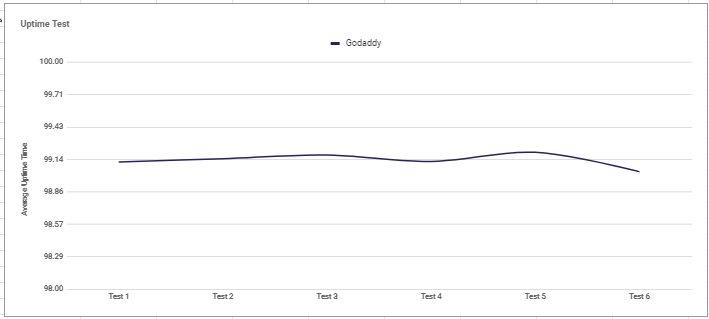
Help and Support
GoDaddy offers live chat and 24/7 phone support but one of the things we really like about its approach to customer service is social media. The social media team is trained to help with support queries and you’ll often see them responding to comments with tips and information.
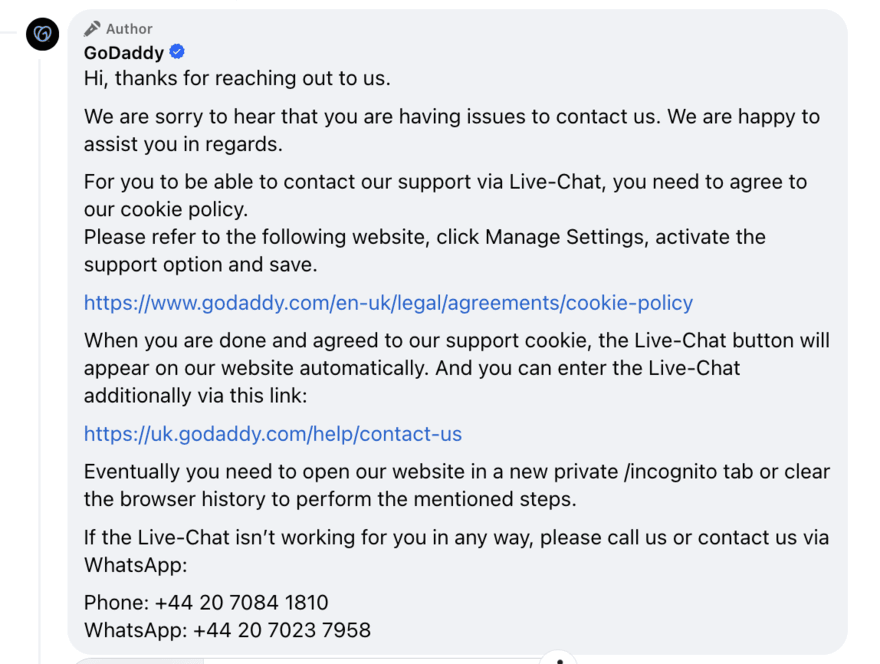
GoDaddy is usually one of our least favorite hosting providers for online resources however it does have quite a substantial bank of ecommerce content to help you get the most out of your hosting plan.
Security and Reliability
Unlike all the others in our top five best ecommerce hosting provider list, on the GoDaddy shared hosting plans you only get a free SSL certificate for the first 12 months. Once the 12 months is up prices start at $69.99 per year for a SSL certificate on GoDaddy. We can’t help but feel this is a real oversight on GoDaddy’s behalf, but it is worth noting that lifetime SSL certificates are provided as part of the WordPress hosting plans.
Storage and Backups
There are daily backups on offer on every GoDaddy Hosting plan which means should your online store be the victim of a security breach, you’ll be able to get it back up and running promptly.
In terms of storage, you’ll need to opt for the Web Hosting Deluxe shared plan to get access to 50GB of NVMe storage, and the storage options across all plans with GoDaddy Hosting tend to fall short compared with providers such as Hostinger.
Buying Guide: How To Choose Ecommerce Hosting
There are loads of ecommerce hosting providers to choose from, not just the five we’ve featured, which means it can be hard to know where to start and what to look for.
Some of the key factors to consider on your hunt for the best ecommerce hosting provider for you are:
- Cost – how much does the hosting plan cost? Remember to factor in any hidden fees or features that you’ll need to pay for as well as the renewal rates once your initial billing period is over.
- Security – you’ll be handling lots of sensitive data which makes things such as SSL certificates, backups, and secure data centers all crucial.
- Uptime – the last thing you want is to put all that effort into building an online store, only for the server to keep going down. Remember, downtime = loss of sales.
- Storage – online stores need a lot of storage. You need a provider that can support your inventory and product listings.
- Accessible support – having a support team on hand whenever you need will help to keep things running smoothly and reduce the stress if and when problems arise.
Top tip! Take a look at the customer reviews for a hosting provider to see what fellow online store owners really think about features including uptime and customer support.
What’s Better: Ecommerce Hosting or an Ecommerce Platform?
You might be wondering if you should opt for an ecommerce hosting provider, like the ones we’ve featured in our top five, or an ecommerce platform.
An ecommerce platform allows you to create and manage an online store, providing the tools you need to sell your products online. These tools include things such as shopping carts, payment processing, and inventory management.
An ecommerce platform is a great choice for those who want to keep everything in one place, such as ecommerce beginners, and those who need to build their website and create a place for customers to shop online.
Some of our favorite ecommerce platforms, such as Shopify, even include hosting which means you don’t have to worry about finding a hosting provider for your store, it’s all built in.
An ecommerce host, meanwhile, is great for those who have already built their ecommerce website and are simply in need of a place to host it and get it “live” online.
How We Test Hosting Providers
We conduct thorough testing in order to bring you detailed guides and expert advice on the right hosting provider for your website.
We test hosting providers against these key categories:
- Price – does it offer value for money?
- Performance – how fast and reliable are the servers?
- Features – does it include all the key features? What extras are available?
- Help and Support – how easy is it to contact the team and how good are the responses?
- Market Analysis – how does it compare to other hosting providers on the market?
There’s no cutting corners, we know how important your online store is for your business and we take providing you with guidance and advice seriously.
Best Ecommerce Hosting Providers: Summary
When it comes to finding the best web hosting for ecommerce, you need a provider that can promise great uptime, secure servers, and plenty of storage. That’s why Bluehost comes out on top as our number one ecommerce hosting provider.
Bluehost may take the top spot, but all the providers in our top five offer reliable and secure ecommerce hosting.
It’s worth remembering that many of the providers in our list offer a 30-day money-back guarantee so why not give one a go, safe in the knowledge that you can get your money back if you aren’t happy with the service?

4 comments